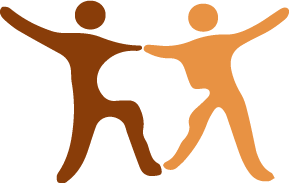HIMD is a registered non-governmental organization based in Ngaramtoni, a suburb of Arusha, which works primarily for women. HIMD stands for Health Integrated Multisectoral Development.
The charitable organization operates without religious, partisan or racist influences and focuses in particular on the health of women. HIMD teaches, sensitizes and encourages women, especially from disadvantaged regions in northern Tanzania, to lead an independent life.
HIMD was founded in September 2003 by Mackrine Rumanyika. Due to Mackrine’s experiences as a young woman in her own family environment, she decided to found the organization to educate people about female genital mutilation. Mackrine studied Human Rights in Regensburg. After completing her studies, she moved back to Tanzania to help people, especially women, to stand up for their rights.
The organization’s vision is a healthy society on all levels: physically, spiritually, mentally, psychologically and socially and economically.
The organization is divided into different fields of work.
- They run the Ekenywa Dispensary. This is a health facility, a small hospital so to say, which specializes in women’s health.
- The health center hosts births, preparatory and follow-up courses for pregnant women and educational classes for young women to prevent teenage pregnancies. In addition, to expand the scope of this commitment, information events are also held at schools. A class visit takes place once a week at selected universities in order to impart knowledge about their body to students and to develop a better awareness of it.
- HIMD also runs a women’s refuge where young women have the opportunity to go to school or do an apprenticeship. Here young women who come from Maasai villages and who have fled from their homes due to the threat of genital mutilation and / or a forced marriage, find a safe place. There are currently 23 women aged 16-18 years in the women’s shelter. Through the support in the women’s shelter, the young women have the chance of a self-determined life.
- HIMD mainly helps vulnerable groups such as single mothers, people with disabilities or people who are HIV positive or living with AIDS. Help arrives at the affected groups in different ways. Some are supported with medication and others in setting up their own business. HIMD teaches women how to make soaps or peanut butter, for example. The women can then sell the products independently. 3) Perhaps the most important area of application, from which not only the women’s shelter but also the hospital results, is the Field Outreach Program. HIMD does important educational work in the villages to raise awareness of the risks of genital mutilation for women. Talks are held with circumcisers and they try to convince them not to continue practicing these traditional rituals and instead to explain the dangers of genital mutilation. So far, HIMD has been able to convince 245 circumcisers to stop practicing and to do educational work for HIMD. HIMD affectionately calls these women champions. Because they make an important contribution to putting an end to genital mutilation.As part of the Field Outreach Program, medical staff is deployed in the villages once a month. During these missions, children are vaccinated, initial examinations of newborns are carried out and pregnant women are examined. Often the hospitals are too far away from these villages, so that for many women and also children it is the only possibility to be examined by a doctor.
In addition to the fields of work listed, HIMD also takes care of public relations. At various events they draw attention to their work and try to create more awareness of the risks of genital mutilation.The organization is financed exclusively through donations. Since we consider the work of HIMD to be extremely important, we would also like to support this project through Giving Smiles and would like to do our part to put an end to genital mutilation in women.


